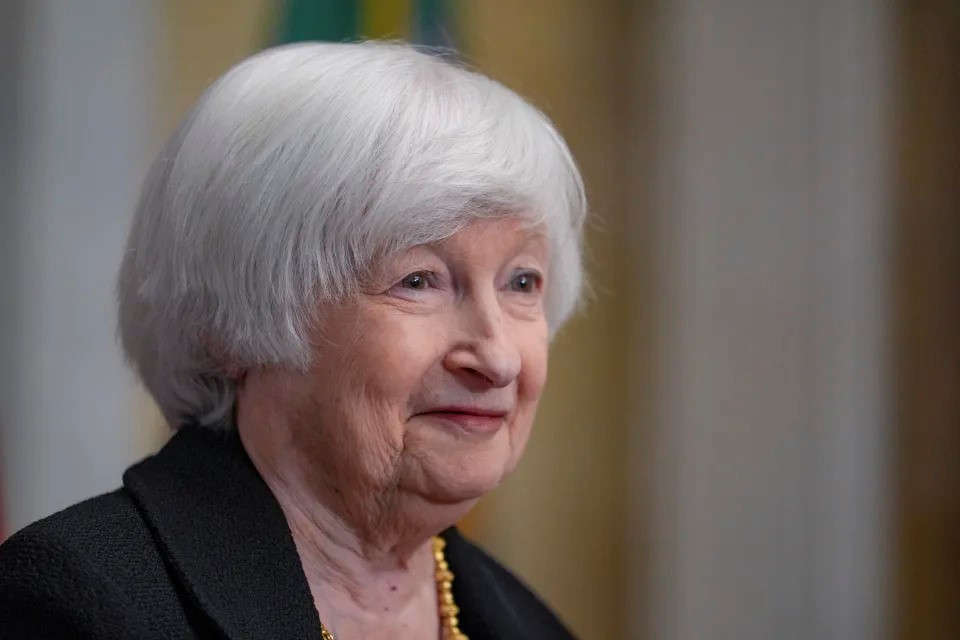Washington, Oct. 29, 2024 – Treasury Secretary Janet Yellen is unveiling a plan Tuesday designed to ensure more Americans have bank accounts and affordable credit, outcomes that she argues will create a stronger and more equitable economy.
The initiative is part of the first-ever strategy by the Treasury Department to increase access to the financial system for Americans, as requested in 2023 by Congress.
“For the first time, Treasury’s strategy provides a national roadmap to expand access to foundational financial tools like credit and investments that are key to building wealth,” Yellen said. “Implementing these recommendations will help more families build financial security and get ahead.”
First on her list of objectives embedded in a 35-page “national strategy for financial inclusion in the United States” is finding more ways governments and financial institutions can encourage people to open transaction accounts at banks backstopped by federal deposit insurance. It’s a strategy designed to reduce the number of “unbanked.”
An estimated nearly 6 million U.S. households did not have a bank account at a bank or credit union, according to the most recent 2021 Federal Deposit Insurance Corporation national survey of unbanked and underbanked households.
Bank account ownership varies significantly by household demographic, including, race, income, and gender.
While just 2.1% of white households lacked a bank account in 2021, 11.3% of Black households, 9.3% of Hispanic households and 6.9% of American Indian or Alaska native households lacked an account, according to the FDIC survey.
Treasury is proposing that the federal government work with local governments to encourage people to open accounts when they get new jobs, a government payment or a tax refund.
When the federal government issued payments to consumers during the pandemic, those without bank account information with the IRS, including some of the most economically vulnerable, had to wait for the arrival of a paper check rather than a faster and more secure direct deposit.
Treasury is also asking banks to expand the availability of bank accounts that are affordable and tailored to meet the needs of underserved communities — avoiding high fees, overdraft charges, and minimum balance requirements.
One example cited by Yellen is the Reading Cooperative Bank in Massachusetts, led by former American Banker Association chair Julie Thurlow.
It has opened a new branch staffed with bilingual bankers in an immigrant community in Lawrence, Mass., providing loans to finance housing redevelopment new financial products.
The biggest bank in the US, JPMorgan Chase (JPM), also recently announced it is opening nearly 100 new branches in low-income areas around the country, including America’s inner cities and rural towns.
Treasury’s plan released Tuesday also suggests ways to get people who have no or limited credit history to be able to borrow money.
Treasury recommends banks, consumer reporting agencies and the government all work together to use alternative ways to show a prospective borrower would repay loans on time by using utility payment history and bank account cash flow to help conjure a credit score so more can gain access to borrowing.
Another action item identified by Treasury Tuesday is to increase retirement and emergency savings opportunities.
It stresses the importance of educating Americans on how to save for retirement and having employers be the bridge for that.
Employers, according to Treasury, should offer incentives for saving and expanding access to retirement saving accounts — as well as tools that make it easier for people to access emergency savings to better manage short-term financial shocks without jeopardizing their long-term retirement goals.
Overall, the report underscores the importance of financial education and the need for plain-language product disclosures, information about consumer rights and recourse options.
Treasury acknowledges that for this strategy to be successful it depends on active participation by banks, governments and employers.
“[This plan] focuses not just on increasing access to the financial system but also on leveraging that access to drive better consumer outcomes like increased financial resilience, wellbeing, and wealth,” said Secretary Yellen. (Yahoo Finance)





